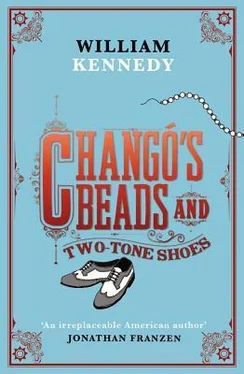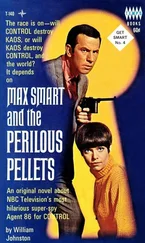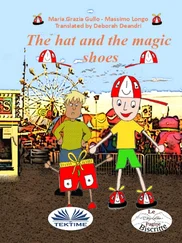Quinn said, “I have no idea and I’m making no accusations and I won’t name a name till I find out what’s real. I’ll keep you posted. I don’t want my source jailed as a conspirator, or maybe killed. He did nothing illegal. He backed off this scheme.”
“He went to target practice.”
“He did, and that was a mistake. He backed off when he heard Alex’s name.”
“We couldn’t run the story even if you verified it, which you can’t. Everybody will lie. Your shooter’s a patsy and your man giving him the gun is either nuts or a provocateur. It’s conspiracy horseshit — let’s get the lefties. We got beaucoup stories tonight. We don’t need speculation.”
“Unless somebody does shoot Alex. If not my man, somebody else.”
“Goddamn it, Quinn, you’re a shit-stirrer.”
Markson walked out of the cubicle, heading for the hierarchy on the second floor. No way he can handle this alone; no way Quinn can handle it alone either. Quinn checked the wire for the latest on Bobby: Condition critical, probably brain dead; police searching for a woman in a black and white polka dot dress who ran down the hotel stairs after the shooting and yelled in exultation, “We got Bobby Kennedy.” At his desk Quinn called Pat Mahar at the Elks. George never arrived. You sure? Positive. Beautiful, another goddamn calamity. Where the hell did he go? Where would he go? Quinn wanted to call Roy to find out what he knew about Zuki but first he called Doc Fahey at the detective office and asked him to have the night squad keep an eye out for George on the street, he may be lost, and he’s wearing a gray Palm Beach suit and a tan coconut straw hat. The cops know him for years, maybe not the young ones. He knows the city better than me, Doc said, but I’ll spread the word. Doc was right. George couldn’t get lost for very long in this town. Quinn called home and Renata told him Gloria was sleeping and Max was on his way there, she’d reached him at Cody’s. He’s very mysterious about coming to Albany, she said. He had lunch with Alex today at the Fort Orange Club. Maybe that has something to do with him coming here. Quinn told her George was roaming loose in town.
He called Jake Hess, the newspaper’s lawyer and a personal friend for years, and asked, “Can I come over right now, Jake? Something dangerous is going on.”
“You sound desperate.”
“I’m too confused to be desperate.”
“Come on over.”
A copy boy dropped a note on Quinn’s desk. Quinn read “Max,” and a number. He dialed it and a voice said, “Cody’s Havana Club,” and Quinn said, “Is that you, Roy?”
“That’s me.”
“It’s Quinn. This is weird. My next move is to call you but I get a message to call Max Osborne and you answer. Max — is he still there?”
“He’s Gloria’s father.”
“He certainly is.”
“I hear she’s sick.”
“She’s all right. She’s with my wife.”
“Tell her I said to get better.”
“Listen. Tremont Van Ort’s the sick one. I just dropped him at Memorial Hospital and he’s in fantastic pain, probably from booze, but he’s also in serious trouble. You talk to him lately?”
“Two weeks ago, maybe. He was juiced. What trouble?”
“I’ll tell you when I see you. This is important.”
“To who?”
“You, me, Tremont, the whole town. What’s your schedule?”
“Half an hour I’m done here. Then I’m at the Brothers.”
“Will you be there long?”
“We’ll probably be on the street trying to head off trouble before it starts. I’ll be in and out.”
“You know anybody named Zuki?”
“Zuki? Why?”
“I need to find him.”
“Why?”
“You win the Twenty Questions prize. Let me talk to Max.”
“He left. A woman called and he went out. I know Zuki. He works with Baron Roland at Holy Cross, I don’t know what he does. He’s a student at the university. He showed up at the Brothers two weeks ago, wanted to talk but I didn’t have time.”
“Do you trust him?”
“Who am I to trust anybody?”
Markson came back and said he’d told the story to Wheeler, the managing editor, who turned blue-green and took him down to Craig Penn, the publisher. “They want to call the FBI. I said it wasn’t real and might never be, but they want the FBI in on it and a report from you with names.”
“You write it,” Quinn said. “You know as much as I do. Tell them I went to Troy to buy a shirt.” And Quinn picked up his notes and went out.

Quinn referred to Tremont as Tex and Zuki as Roxy when he told the story to Jake Hess. Roxy, a young black in college, writing a book on Black Power, and Tex, a penniless, powerless, malleable, dying, grieving black man at the bottom of the world, in and out of jail half a dozen times as drunk and vagrant, also a veteran, Purple Heart, full of anger that can’t be mobilized against all the white bosses who stunted him, crippled him, his wife a drunk and now dead, his child a slum creature run off forever. And solitary Tex broods on fate, his gorge rising as he listens to Claudia the matriarch, the heroine of Better Streets, as she spews venom against the politicians who ignore us and our streets and treat us like the garbage they don’t even collect, like we live in a dump, she says, yeah, yeah, yeah a dump, says Tex, and the drink makes dump-life easier, calms him enough to let him imagine how the same people who killed Martin Luther King also killed Mary, poisoned her wine and gave him wine with the’ritises in it, but Tex says I’m stronger than she was, little bird of a thing couldn’t cut it, they killed my Mary ’cause they can’t handle us, so they guttin’ us one by one. And Roxy says to him, that’s the truth and we gotta get even. And Tex says you right, we gotta do that, and he reads a mimeographed letter signed by Black John that Roxy happened to find on the bar where they had gone to share their grief, and Black John says in his letter that black men gotta get up and move, stop hanging on the apron strings of the old mammies, those sweet old gals who want to run the town, let ’em try, ain’t doin’ no harm, but nobody in power’s gonna pay ’em no mind, you gotta go out on your own, black man, do what Black John is doin’, stand up to the white man, be a damn man, black man, be a man, don’t let the fat women talk for you, talk for yourself and let ’em all know you’re livin’, show ’em what a black man can do. And Tex says to Roxy, who is this Black John? Damn if I know, Roxy says, he just writes these letters and sends ’em around. Well, says Tex, he’s right, but what we gonna do and how we gonna do it? And Roxy says, we got to think this out, and that’s just what I been doing, writing this book about it, about the black man getting power, we had power in Korea, didn’t we? You were in Korea? Tex asks, and Roxy says, you know the battle of Chipyong-ni? I know it, Tex says. Hell of a show, says Roxy, and I got me some gooks. Tex says I got me a few, and Roxy says I heard you did, I heard you were a good shot and that you got the medals to prove it. I am a hell of a shot, Tex says. You can make money bein’ a hell of a shot, Roxy says. How you do that, Tex asks, hold up banks? Take out some of these no-good motherfucks, Roxy says. Take ’em out? And Roxy says, Get somebody nobody gonna miss or mourn and they don’t even ask who did it. He’s gone, he’s all done, that’s fine, thank you kindly, mister. Like Bobby Kennedy, that no-good, just because he’s a Kennedy, fuck him, you could shoot him. Shoot Bobby Kennedy? Who could? What the hell you talkin’ about? And Roxy says I’m talkin’ money. And he takes Tex out to practice his shooting.
Читать дальше













